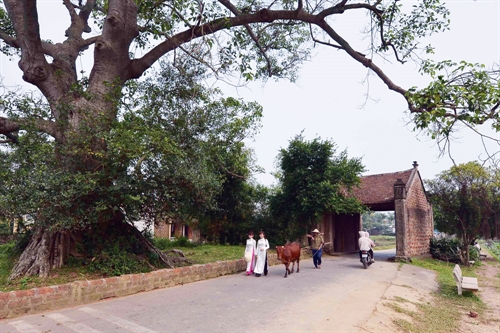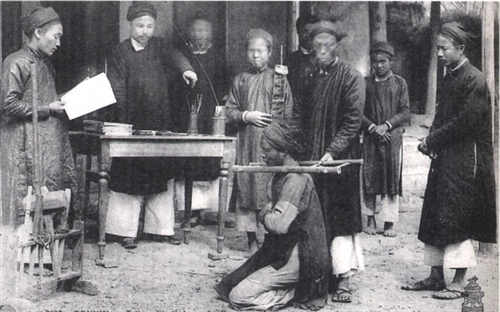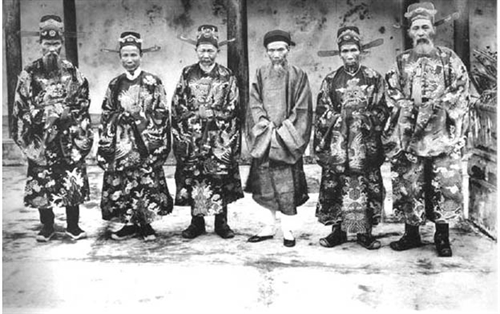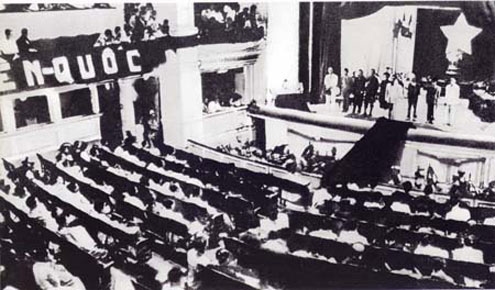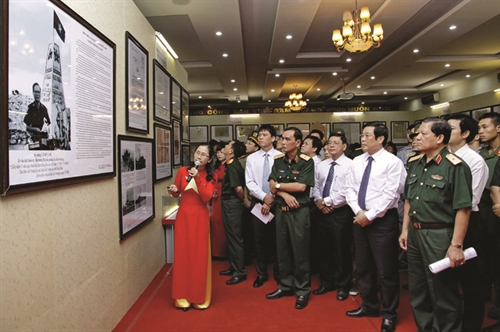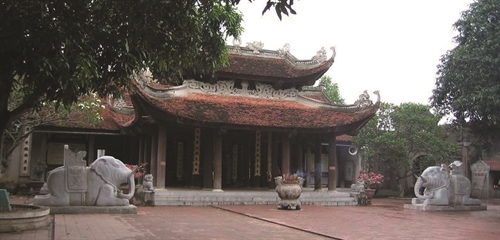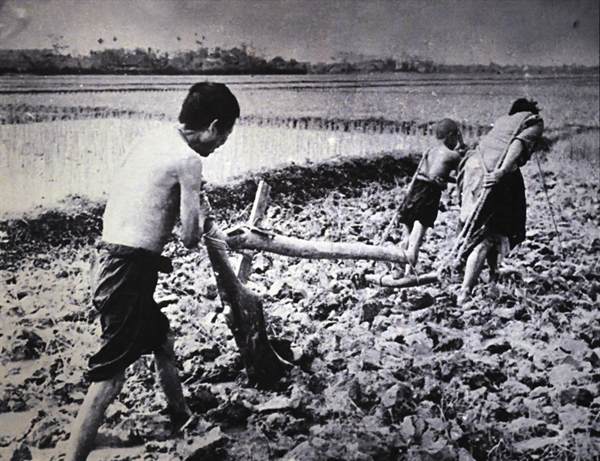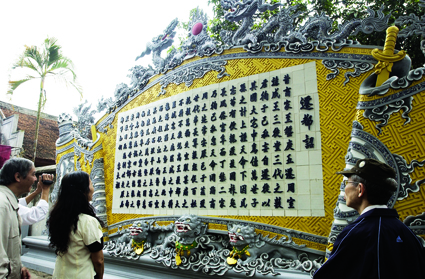King Le Thanh Tong left glorious imprints on the Vietnamese history. After 38 years on the throne, from 1460 to 1497, he bequeathed great treasures in all political, economic, social, legal, military and diplomatic aspects. They include two valuable lessons for the ongoing anti-corruption work in Vietnam, that is, “building a clean administration” and “fighting corruption by law”.
Nguyen Van Thanh, LL.D
Deputy General Inspector of the Government
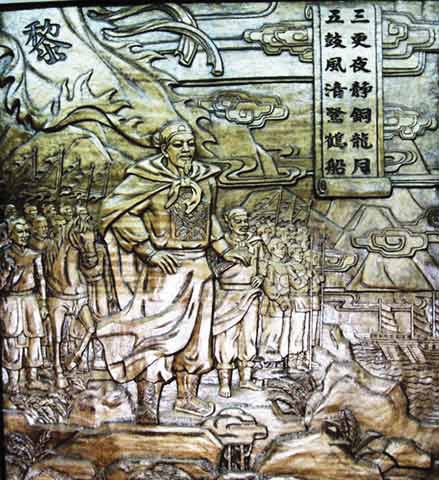 |
| A bas-relief sculpture of King Le Thanh Tong displayed in Da Nang Museum__Photo: https://baotanglichsu.vn |
Building a clean administration
King Le Thanh Tong considered building a disciplined mandarindom a basic foundation for ensuring peace and prosperity. He said: “Being entrusted to rule the country, one must post mandarins, arrange positions, and establish discipline and regulations to bring about peace and prosperity for all times.”[1] His idea of building an honest and righteous mandarindom was presented in great detail from the selection, arrangement, promotion and rotational transfer of mandarins to preferential treatment and reward for them. The center of the administration which King Le Thanh Tong wished to establish was the building of a contingent of talented and virtuous mandarins.
For the selection of mandarins, King Le Thanh Tong issued a decree: “From now on, to fill in vacant positions in the royal court and local administration..., Bo Lai (the Ministry in charge of organization and personnel affairs) must select mandarins who are honest, righteous, industrious and straightforward and have made political achievements.”[2] The King also spoke of the search for talents, having always thought of how to seek out talented persons among mandarins of lower ranks in rural areas. In order to choose talented persons, the methods of “bao cu” (guaranteed nomination) and “tien cu” (recommended nomination) were applied besides royal examinations. Guaranteed nomination and recommended nomination had to satisfy the following criteria: “First, for recommended nominee, the more talented and virtuous persons will be selected regardless of their social status; second, for guaranteed nominees, the respectable and qualified persons will be selected.”[3] To avoid abuse, recommenders and guarantors had to assume responsibility for their recommended or guaranteed persons: “Those who nominated unqualified persons shall be subject to rank demotion or dismissal; if they nominated worthy persons they shall be rewarded.”[4] In 1484, the King decreed: “From now on, upon royal orders on nomination guaranty, yamen mandarins who know talented, knowledgeable, honest and righteous persons may nominate those persons to appropriate positions, and such nomination must be clearly recorded. If the nominee later becomes despicable, commits corruption and fails to render good services, the nominator shall be held responsible.” According to Vietnamese historian Phan Huy Chu (1782-1840), during King Le Thanh Tong’s era, the nomination guaranty and recommendation “were made prudently as heavy penalties were imposed on abusers; hence, no one dared to make unfair nominations, the nominees were all worthy and, as a result, talented and virtuous persons were chosen”[5].
Together with the selection of talented and virtuous persons for appointment to be mandarins, under King Le Thanh Tong’s reign, the preferential treatment and reward of mandarins were carried out in a fair manner. The King advocated the establishment of a reasonable salary regime so that talented and virtuous persons could wholeheartedly perform their work: “Only when mandarins are better off, can they start doing good deeds” and “only when the royal court grants favors to mandarins can the mandarins grant favors to commoners.”[6] In 1473, he established a bonus regime for mandarins, under which the bonuses vary for “localities where there are few affairs to be handled and for positions which are not very busy.”[7]
Regarding the commendation of mandarins who fulfilled their assigned missions, historical books recorded the case of Nguyen Thien, a mandarin in Ngu Su Dai (the Office in charge of personnel affairs and judicial judgment), who was commended by King Le Thanh Tong: “Nguyen Thien, as a mandarin in Ngu Su Dai, boldly spoke out the wrong doings,” according to the King’s decree: “You are a loyal subject, fully devote to the country and usually report the truths and do not feel upset when I sometimes use my power to suppress you. Truly you deserve commendation. Now, I dispatch a mandarin to bring the order rewarding you with taels of silver.”[8]
To reward good mandarins, the King also applied the regime of transferring them to localities with better working conditions: “Mandarins working in far-flung border areas, who show their love for commoners, do not excessively press for tax collection but still fully collect taxes, will be transferred to places with more favorable working conditions after accomplishing their six-year term there.”[9]
In addition, to build a clean administration, King Le Thanh Tong also set up offices to supervise the recruitment, appointment, promotion and demotion of mandarins and applied the regime of apprenticeship before official appointment in order to test the talents and virtues of mandarins. A mechanism for investigation was put into place to gather public opinions on ruling mandarins. Specialized bodies were also set up to oversee mandarins in each region for reporting to the royal court.
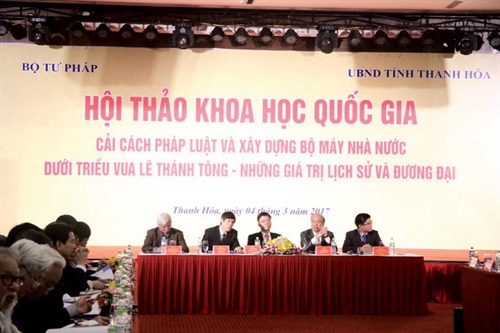 |
| National scientific seminar on legal reform and state apparatus building under King Le Thanh Tong’s reign - Historical and contemporary values, held on March 4 in Thanh Hoa province__Photo: https://baotanglichsu.vn |
Fighting corruption by law
One of the huge legal legacies of the feudal time is Bo luat Hong Duc (the Hong Duc Code), also known as Quoc Trieu Hinh Luat (the Criminal Code of Royal Dynasties) or Le Trieu Hinh Luat (the Criminal Code of the Le Dynasty). The emergence of the Hong Duc Code and the organization of law enforcement in the King Le Thanh Tong’s era clearly demonstrate the spirit of preventing and fighting corruption by law.
The Code had six volumes, 13 chapters and 722 articles, out of which 78 articles addressed corruption-related acts. Of these articles, 14 articles established the crimes of taking bribes, harassing for appropriation of people’s property.... These articles’ contents on corruption prevention and fighting were clear and characterized by a high level of deterrence. The articles on position-related corruption crimes were detailed, dealing with the crimes of taking bribes, asking for bribes, embezzling public property, violating the salary regime and abusing power.
Worth of note, many corruption-related articles clearly defined the material liability of offenders. For example, Article 138 on the crime of taking bribes said: “If a mandarin who takes a bribe of between one and nine ‘quan’ (a former currency unit) shall be sentenced to ‘biem` (degrading) or ‘bai chuc’ (dismissal); of between 10 and 19 ‘quan’ shall be subject to ‘do’ (corvee labor) or ‘ luu’ (exile); and of 20 ‘quan’ or more shall be decapitated. High-ranking and talented mandarins who take a bribe of between one and 9 ‘quan’ shall be subject to a fine of 50 ‘quan’; of between 10 and 19 ‘quan’ shall be subject to a fine of between 60 and 100 ‘quan’; and of 20 ‘quan’ or more will be subject to ‘do’ (corvee labor).”
Article 626 on acts of asking for bribes said: “High-ranking mandarins, executive mandarins and prison supervisors who claim the King’s pardon as their own service and ask for bribes from prisoners shall be sentenced to corvee labor, exile or death”. Article 150 said: “Mandarins who are assigned to mobilize village young men, dignitaries or laborers but are late in performing the assigned task or employ those people for their personal purposes shall be subject to degradation or corvee labor. Those who perform such work unfairly or with delay for bribes shall be sentenced to degradation, corvee labor or exile. Local mandarins who mobilize by themselves village young men to perform their personal work shall be subject to degradation or corvee labor.” According to Article 594, “those who hide public property valued at one ‘quan’ or more shall be sentenced to degradation; at 10 ‘quan’ or more, to corvee labor; at 20 ‘quan’ or more, to exile; at 50 ‘ quan’ or more, to death. If they have not yet actually appropriated the property, these penalties shall be reduced by two grades.”
In order to effectively enforce the law, Ngu Su Dai was set up to supervise mandarins. According to King Le Thanh Tong’s decree dated September 26, 1471: “Ngu Su dai functions to correct mistakes committed by mandarins and clearly understand the feelings and worries of commoners. It has the competence to question mandarins. Any mandarin who commits mistakes or wrongful acts shall be examined...”[10]. Mandarins were subject to supervision not only by Ngu Su Dai but also by provincial supervisory offices.
Historical books recorded many cases where high-ranking mandarins were severely punished for corruption, bribe taking or other wrong doings such as Minister Tran Phong, Ngu Su Dai inspector Quan Cong, and Minister Do Tong Nam. The King once ordered “those mandarins who committed greedy acts and those army generals who collected money from their ranks and files from 10 ‘quan’ or more be dismissed.”[11]
In handling violating mandarins, King Le Thanh Tong combined severe penalties with admonishment. Kham dinh Viet Su thong giam cuong muc recorded King Le Thanh Tong’s advice to mandarin Tran Cu Dao: “During childhood, you and I played together. When I was put on the throne, you were always by my side in the royal court. Speaking of our duty, I am the king and you are the subject; speaking of out sentiment, you and I are like fish and water. You must totally devote yourself to the country, be public-minded and selfless, ward off bribery. If so, I will be a good king and you will be a subject totally loyal to the country, be full of honor and fame.”[12] The King also showed tolerance to talented mandarins who committed petty corruption and showed repentance. According to the above-said historical book, when being reported that mandarin Su Hoi and his father Xi took a bribe of eight taels of silver, the King ordered a “Tu le giam” (a high-ranking inspector) to bring his decree reprimanding the mandarin and admonishing: “You committed an error and courageously addressed it and may be later free from shame.”[13]-
